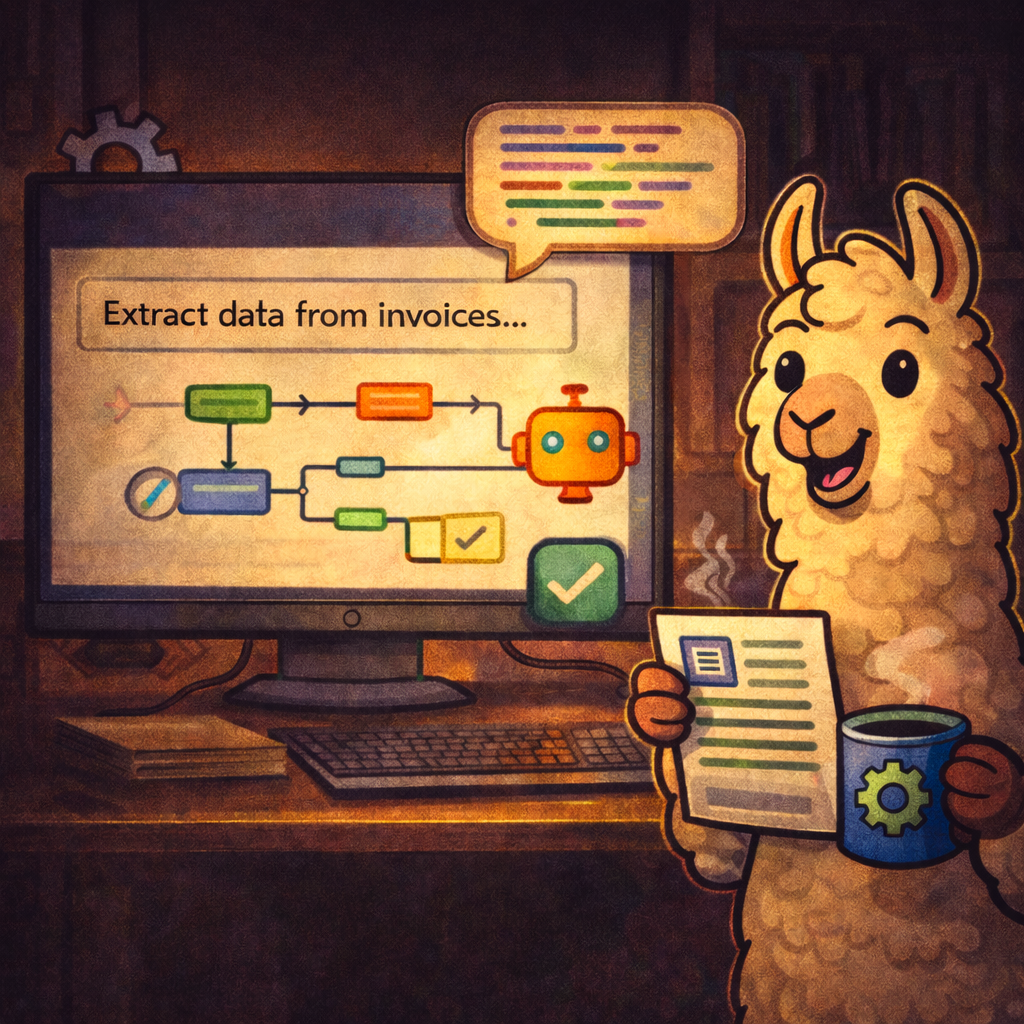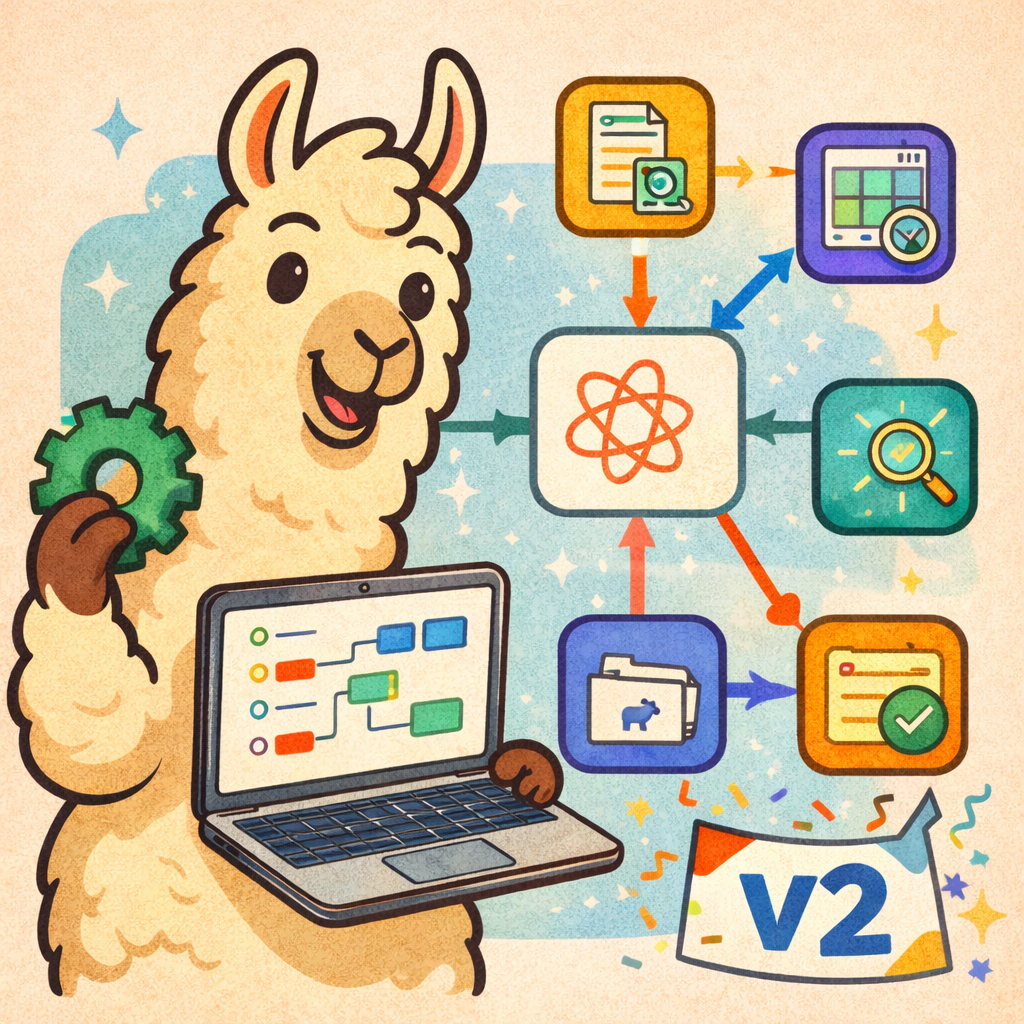Hello to Our Llama Community! 🦙
Hope your Thanksgiving was delightful! We’re thrilled to announce a major milestone: LlamaIndex has hit 1 million monthly downloads on our Python package! A big thank you to everyone for your support, feedback, and contributions that have fueled our journey. Stay tuned for more exciting new products and features coming your way.
If you have a fascinating project or video you’d like to share, we’d love to see it! Feel free to send it to us at news@llamaindex.ai. And remember to subscribe to our newsletter on our website to stay in the loop. We can’t wait to connect with you there!
🤩 First, the highlights:
- Launched Llama Packs: Prepackaged modules and templates streamlining LLM app development. Blog, Tweet.
- RAGs Project: Build your own retrieval augmented generation app just by talking. Project, Tweet.
- Introduced FuzzyCitationEnginePack: Precisely aligns LLM responses to source sentences via fuzzy matching, available as an easy-to-implement LlamaPack. Docs, Tweet.
Coming up this week: on Thursday 30th our very own Yi Ding will be giving a workshop on Building an Open Source RAG Application Using LlamaIndex. Sign up for free here
✨ Feature Releases and Enhancements:
- We introduced Llama Packs 🦙📦, a series of prepackaged modules and templates designed to jumpstart your LLM app development. These packs eliminate the need for assembling and tuning custom components for each use case. Blog, Tweet.
- We have introduced the RAGs project for programming AI agents using natural language, inspired by the interest in OpenAI’s GPTs. Our approach involves a ‘Builder Agent’ that crafts a ‘Custom Agent’ tailored to specific tasks, incorporating tools for system prompt setting, data loading, model configuration, and RAG parameter adjustments. Project, Tweet.
- We introduced a LlamaPack that enables the setup of a fully local RAG pipeline with just one line of code. This pack includes Zephyr-7b as the LLM and bge-base as the embedding model. Docs, Tweet.
- We introduced
FuzzyCitationEnginePackthat maps parts of an LLM-generated response from a RAG pipeline to the exact sentences in the source context using fuzzy matching. This innovation elevates citation accuracy and is now available as a LlamaPack for easy implementation with just one line of code. Docs, Tweet.
👀 Demo:
- AI-Einblick Prompt is a JupyterLab extension that uses OpenAI’s GPT 3.5 and 4, powered by LlamaIndex, to assist in data science workflows by generating, modifying, and fixing code, creating charts, and building models, seamlessly integrated within the JupyterLab environment. Project, Tweet.
- Ranya Khemiri uploaded a research paper to RAGs to help with a school assignment and observed results better than file retrieval with ChatGPT. Blog, Tweet.
🤝 Integrations:
- CogniSwitch introduced a fusion RAG approach combining vectors, knowledge graphs, and rules for streamlined ingestion and retrieval. This allows for flexible usage, either as an independent query engine or as an integrated tool within an agent with LlamaIndex. Docs, Tweet.
🗺️ Guides:
- Guide on shipping your RAG application to production with create-llama.
- Guide on multi-modal models: Our comparison tables detail differences in image reasoning, embeddings, and synthesis capabilities. We also provide insights into multi-modal support for vector stores, focusing on image support with future audio/video integration.
- Guide on getting started with AI in your enterprise from Gradient AI. This introductory guide explains retrieval-augmented generation (RAG), its relevance for businesses, and how to balance fine-tuning, prompt engineering, and RAG for optimal results, along with strategies for RAG optimization.
✍️ Tutorials:
- Ankush k Singal made a tutorial on Document Extraction with Zephyr 7b LLM using LlamaIndex.
- Wenqi Glantz made a tutorial on Automating Hyperparameter Tuning with LlamaIndex.
- Tonic AI analysis on OpenAI Assistant API vs LlamaIndex RAG.
- Pradip Nichite made ****a ****video tutorial on using RAGs which provides easy-to-follow instructions on how to build or customize a chatbot capable of advanced summarization over your data, making it accessible even for non-developers.
🎥 Webinars:
- Jerry Liu presented a webinar with Arize AI on LLM Retrieval Evaluations.





